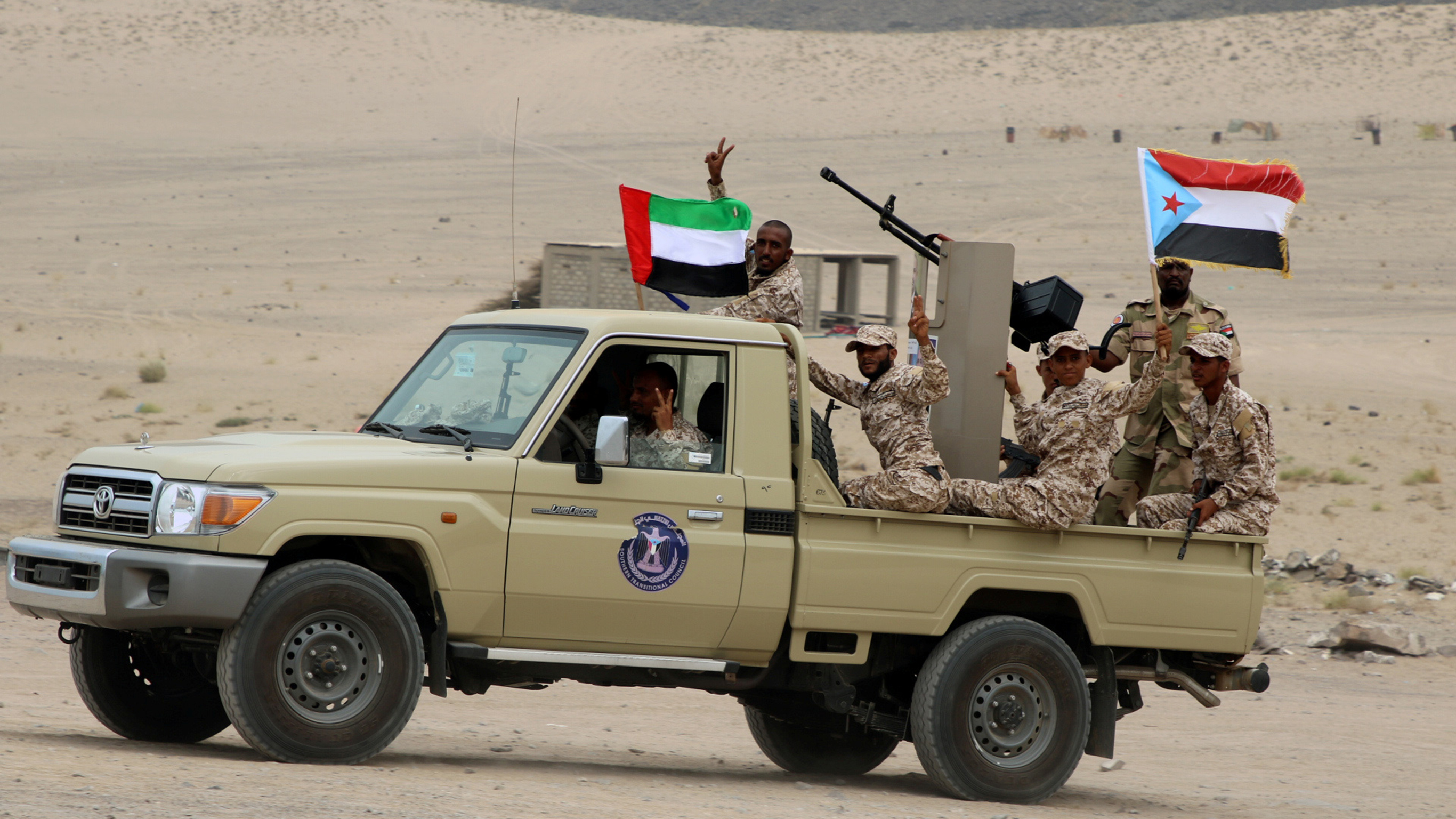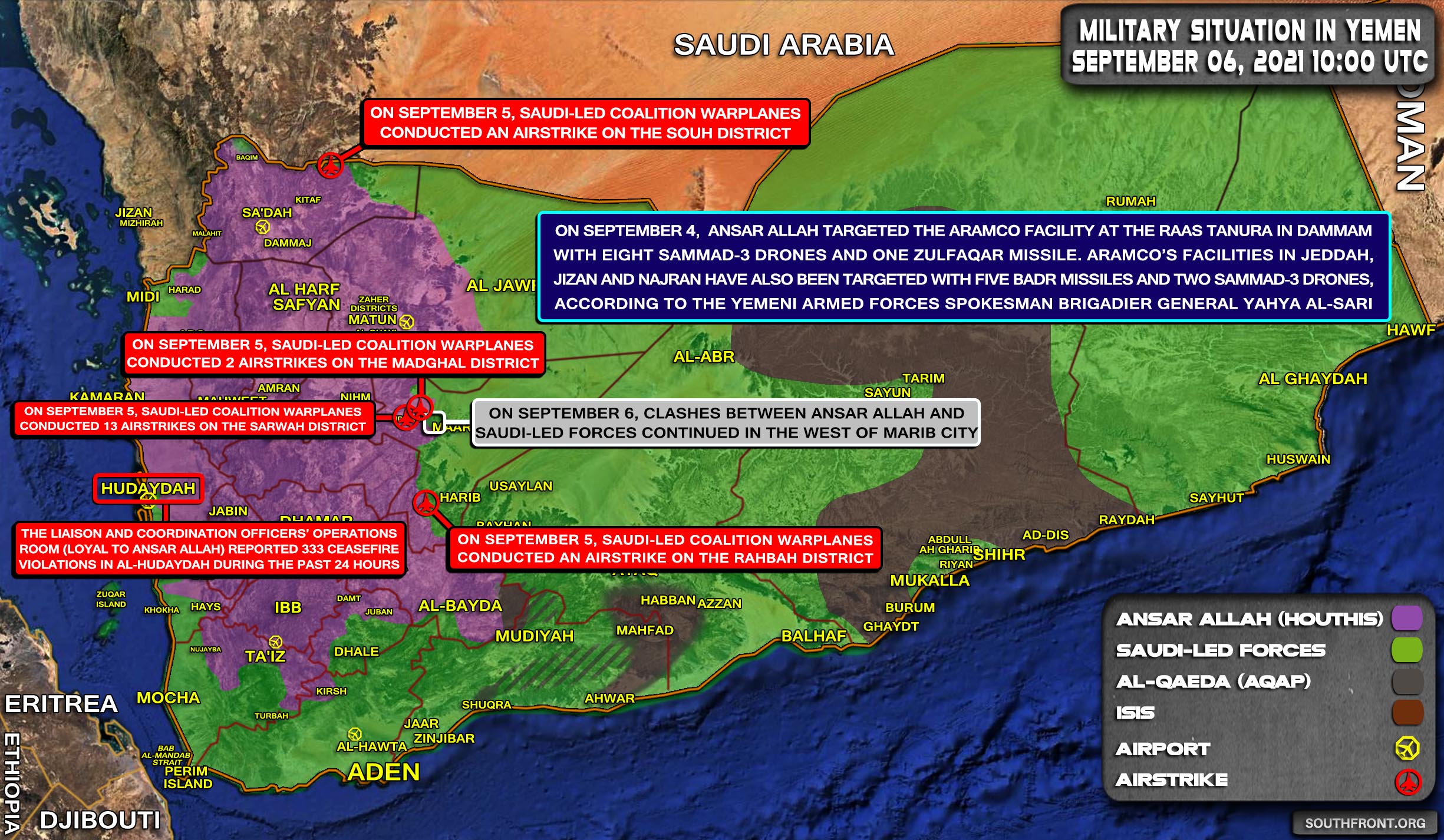Some changes have taken place in the conflict, but they have not been getting enough attention.
Written by Lucas Leiroz, research fellow in international law at the Federal University of Rio de Janeiro.
While the entire world is concerned exclusively with Afghanistan, other conflicts continue to take place and receive less and less attention. This is precisely the case in Yemen. Contrary to the expectations of some experts in early 2021, the civil war did not end, and, in fact, violence seems to increase day by day. Despite representing a great advance towards a possible resolution of the conflict, the international dialogues held so far have been insufficient and, unfortunately, the tendency is for the international society to further diminish its attention to the humanitarian crisis in the country.
Earlier on Sunday, the Saudi air force intercepted a ballistic missile launched by Houthi rebels against targets in the Eastern Province. This region is rich in oil, indicating that the targets of the attack were likely to be Saudi oil installations. Although the attack was intercepted, a lot of damage was done. Debris generated by the missile debris spread across the entire Dahyat Al-Dammam region, destroying fourteen houses, and injuring at least two children. According to data from the Kingdom’s Ministry of Defense, in addition to this missile, Saudi forces intercepted and destroyed on the same day two more ballistic missiles and three drones loaded with heavy weapons that had been launched by rebels towards the provinces of Jazan and Najran.
These cases were only a part of a large wave of recent attacks. The Houthi Resistance has publicly announced that it has been carrying out attacks on Aramco (a major Saudi state oil company) facilities, mainly in Ras Tanura and Jeddah, cities in the eastern part of the Saudi Kingdom and on the coast of the Red Sea, respectively. The attacks have been operated precisely by drones and ballistic missiles.
The Western media has described such cases as a wave of Houthi violence, but the reality is much more complex. By attacking Saudi oil bases, the rebels are trying to cut off a major source of funding for the Yemeni government, which has been carrying out a huge series of humanitarian crimes against the Houthi population. In this regard, rebel spokesperson Yahya Saria said: “As part of countering the criminal aggression against the country, our armed forces attacked vital targets and military bases belonging to Saudi Arabia, in particular, the Aramco facilities in Ras Tanura in the Dammam region, using eight drones and a ballistic missile”.
The crimes committed by Saudi troops and Yemeni government forces – with support and funding from the Kingdom – have been denounced since the beginning of the conflict in 2015. Massacre of civilians, blockade of humanitarian aid and bombing of densely populated regions become common scenarios in the country. There are also accusations against the Houthis themselves, who supposedly would also have committed some war crimes, but the number and seriousness of the acts carried out by the rebels seems to be much smaller. The insurgents have fewer material and financial resources to practice violence against their enemies, even though they receive support from Iran. The Riyadh-led Arab coalition has invested heavily in the war, mainly as a laboratory for the Saudi air power, testing modern military drone equipment against the Houthi people (which is a Shiite ethnic minority, not just a rebel army). Indeed, as long as there is Saudi funding for the Yemeni government, the humanitarian situation will remain catastrophic, so there is nothing particularly “wrong” or “anti-humanitarian” about the recent attacks by the Houthis against Saudi territory – it is just a strategy to attack the roots of the conflict.
However, the Western attitude has been one of vehemently condemning the Houthis. Washington made pronouncements against the rebels, demanding an immediate end to cross-border attacks. Secretary of State Anthony Blinken stated: “The United States condemns the latest Houthi missile attack against Saudi Arabia that struck the Eastern Province on September 4, injuring two children and damaging several homes. These attacks threaten the lives of the Kingdom’s residents, including more than 70,000 US citizens”. Interestingly, Washington began a diplomatic crisis with the Saudis precisely because of humanitarian crimes in Yemen. Now, the US position is to criticize the Houthis’ also anti-humanitarian attitudes. And with that, the American government reduces itself to the role of “moral regulator” of human rights, when it could use its influence to resolve the conflict.
Although Central Asia is a great global “geopolitical thermometer” today, the Yemeni scenario reflects much of the situation in the Middle East and deserves to be treated with special attention. Months ago, many experts began to predict that the war in the poorest country of the Middle East would end as, in addition to American pressure against the Saudis, Riyadh began to move closer to Tehran, but negotiations did not progress enough to end the conflict, and, with this, the war has been gradually evolving from a mere “proxy war” to a real international confrontation.
Increasingly, the war seems to go beyond borders, and it is no longer necessarily a proxy war, but a clash that will continue until one side achieves absolute victory, regardless of the Saudi Arabia-Iran approach. The Houthis will continue to fight, and it is likely that, even in an approaching scenario, the Iranians and Saudis will continue to fund the war as a way to test military material and pressure each other to gain advantages in their negotiations.







